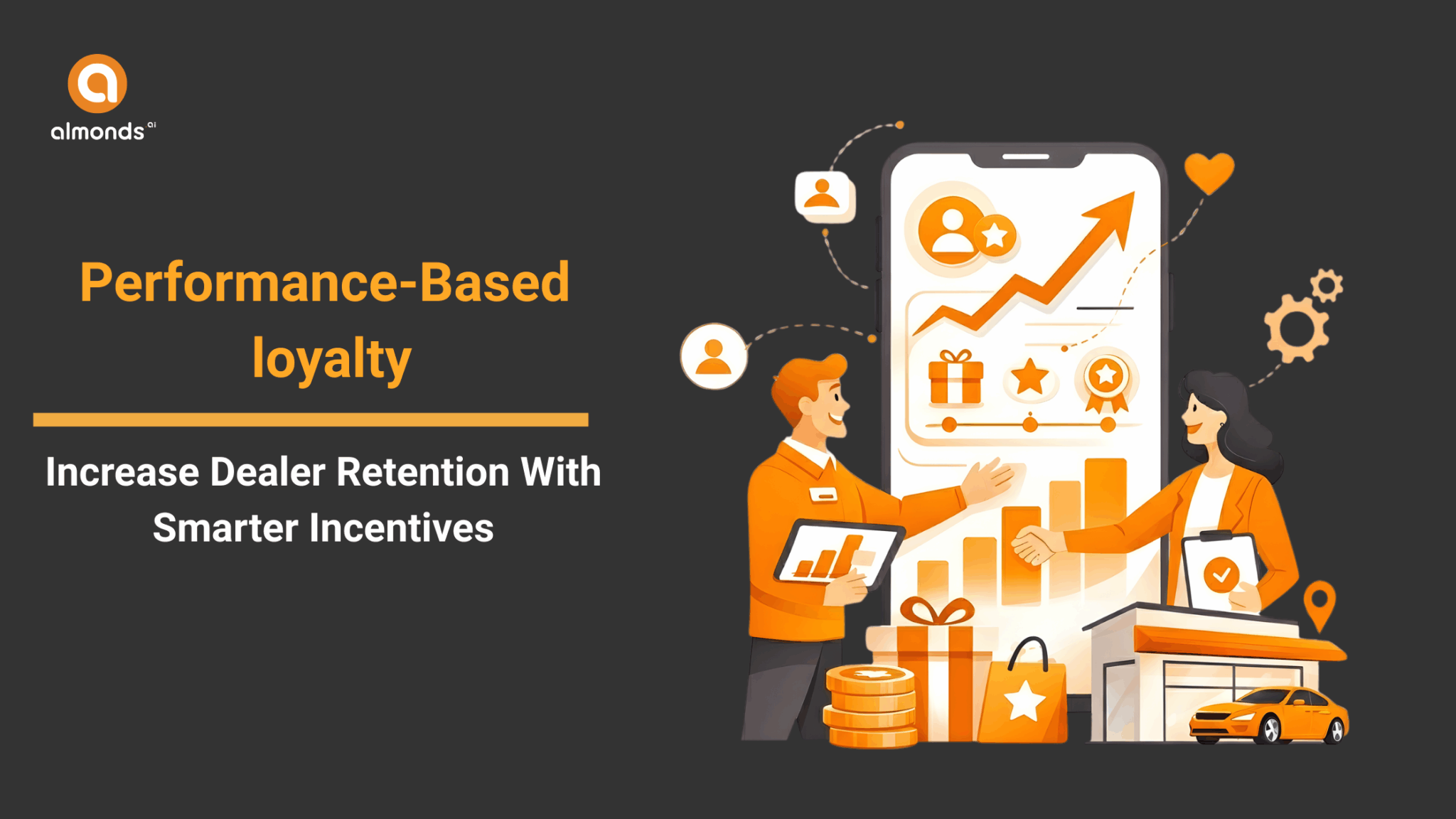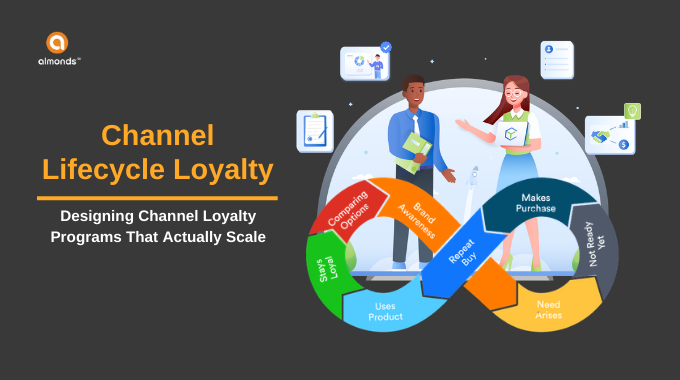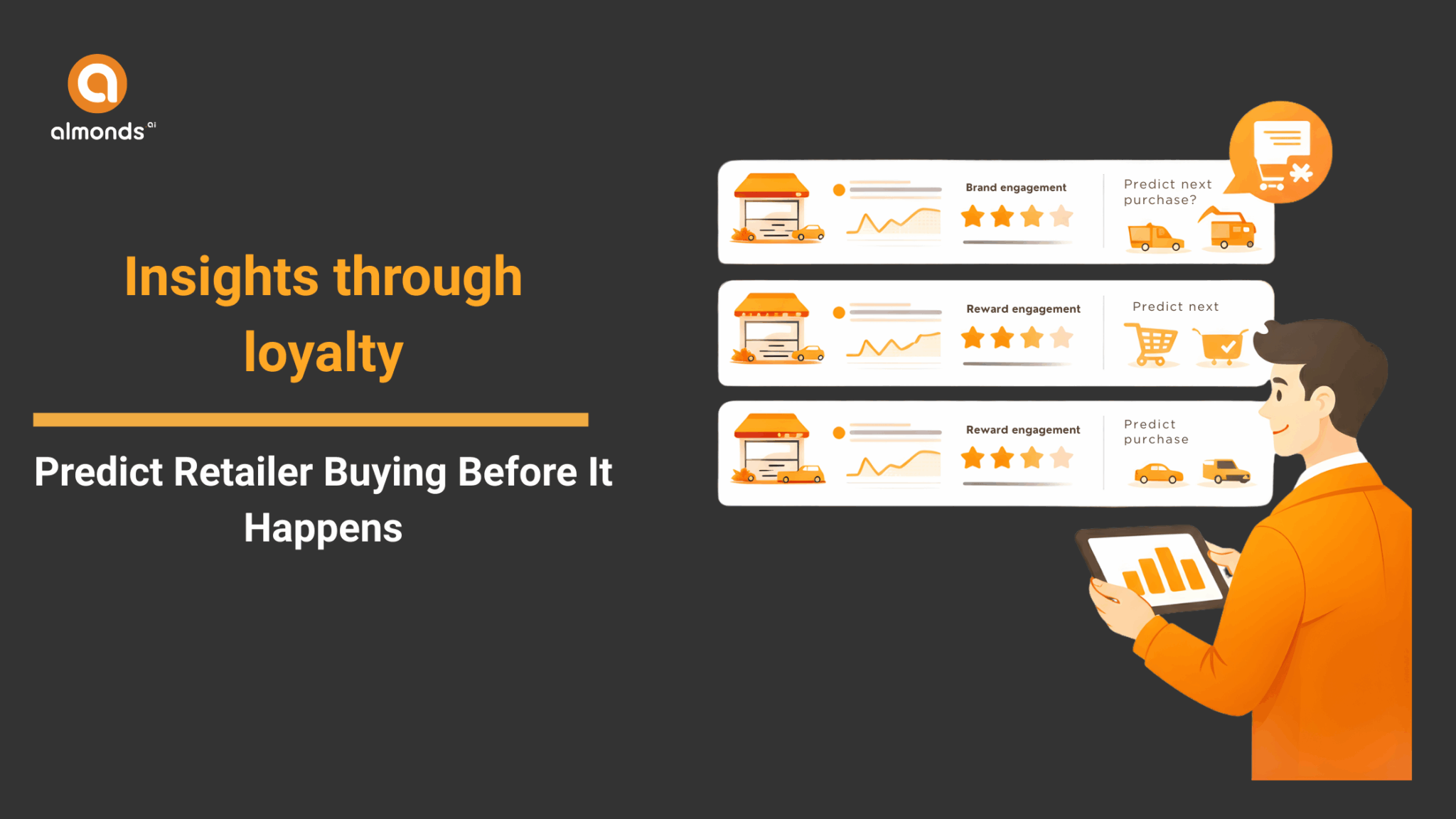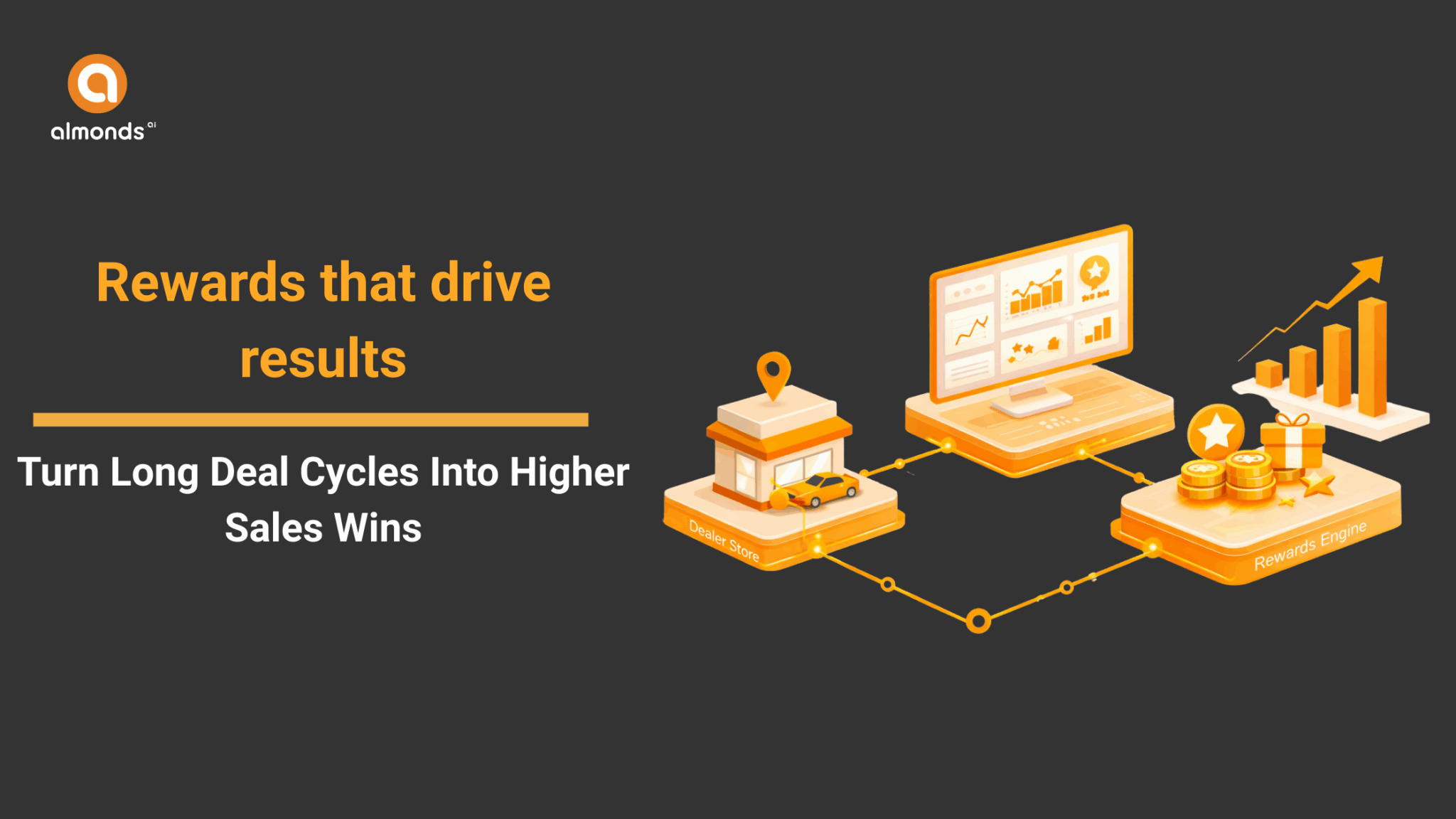India’s competitive market requires businesses to not only attract customers but also retain them for long-term success. A well-designed loyalty program can offer significant advantages, making it a crucial tool for driving customer engagement, retention, and revenue growth. Whether catering to B2C customers or leveraging a B2B loyalty platform for channel partners, loyalty programs are transforming the business landscape across industries.
Here’s a detailed look at the 15 key benefits that loyalty programs offer to businesses in India.
What is a Loyalty Program?
A loyalty program is a structured marketing strategy designed to reward customers for their ongoing engagement with a business. This could involve earning points, cashback, discounts, or exclusive perks in exchange for making purchases, referring others, or completing other valuable actions. Loyalty programs are built to incentivize repeat business, encourage customer retention, and strengthen relationships between brands and their customers.
In India, loyalty programs have become a strategic tool across industries, from retail and e-commerce to B2B sectors like manufacturing and distribution. By providing customers or partners with tangible rewards, businesses can significantly improve their long-term profitability.
Who Should Implement a Loyalty Program?
Loyalty programs are beneficial for businesses of all sizes and industries. Companies that rely heavily on repeat purchases, customer loyalty, or strong relationships with channel partners should consider implementing a loyalty program.
Here are a few types of businesses that can benefit from a loyalty program:
- Retail and E-commerce Brands: These businesses benefit from higher customer retention and increased lifetime value through personalized offers and rewards.
- B2B Companies: A B2B loyalty platform helps businesses engage channel partners, such as distributors, dealers, or suppliers, and incentivizes them to promote products more actively.
- Service-based Businesses: Businesses offering services like healthcare, financial services, hospitality, or telecommunications can increase customer engagement by rewarding long-term use or premium subscriptions.
- FMCG and Consumer Goods: These sectors can leverage loyalty programs to encourage higher purchase frequency and brand advocacy among consumers.
- Manufacturers and Distributors: Manufacturers can use loyalty programs to incentivize distributors and retailers to push their products, improving sales and supply chain efficiency.
1. Increased Customer Retention
Customer retention is critical to sustainable growth. According to a study published in Harvard Business Review, a mere 5% increase in customer retention can drive profits by 25% to 95%. In the Indian context, where businesses face high competition, loyalty programs provide an effective strategy to foster lasting relationships with customers. By offering rewards and personalized experiences, businesses can ensure that customers keep coming back.

2. Encouragement of Repeat Purchases
Loyalty programs encourage repeat purchases by offering customers incentives for their continued business. According to Statista, 75% of consumers in India are more likely to engage with a brand that offers a loyalty program. This increase in repeat purchases not only strengthens the customer’s relationship with the brand but also drives overall revenue growth. A program designed to reward customers for specific behaviors, such as making frequent purchases or reaching spending thresholds, can significantly boost sales volume.
3. Enhancing Customer Lifetime Value (CLV)
The Customer Lifetime Value (CLV) is a metric that highlights the total revenue a business can expect from a customer over the duration of the relationship. Loyalty programs, especially those driven by a B2B loyalty platform, help extend CLV by offering consistent incentives and building long-term loyalty. By rewarding customers for their loyalty, businesses can cultivate deeper relationships and increase the likelihood that customers will spend more over time.
4. Building Stronger Brand Affinity
Brand affinity is about fostering a strong emotional connection between customers and the brand. Loyalty programs are instrumental in enhancing brand affinity by creating a sense of exclusivity and recognition. A study by HubSpot reveals that 90% of companies with loyalty programs report higher customer satisfaction. By consistently rewarding customers, businesses can create brand advocates who remain loyal and spread positive word-of-mouth, particularly important in India’s diverse and highly competitive market.
5. Boosting Customer Engagement
Engaged customers are more likely to stick with a brand. A well-crafted loyalty program, integrated with gamification techniques and mobile apps, keeps customers actively involved with the brand. By utilizing B2B customer engagement platforms, businesses can offer dynamic rewards, personalized offers, and interactive experiences that encourage continuous engagement. For instance, loyalty programs that offer exclusive access to new products, early sales, or special events can maintain customer interest and promote higher engagement.
6. Cost-Efficient Marketing Strategy
One of the major advantages of loyalty programs is their cost efficiency. According to Forbes, acquiring a new customer can cost five times more than retaining an existing one. By focusing on retaining loyal customers through targeted rewards and incentives, businesses can lower their marketing spend and achieve better returns on investment (ROI). A well-structured loyalty program allows businesses to redirect marketing budgets from acquisition to retention, where returns are often more predictable and consistent.
7. Delivering Personalized Customer Experiences
In today’s digital world, customers expect personalized experiences, and loyalty programs offer an excellent platform to deliver them. Through the integration of data analytics, businesses can track customer behavior, preferences, and purchase history, enabling them to tailor rewards and offers. A HubSpot report highlights that customers who receive personalized offers are 50% more likely to make a repeat purchase. This level of personalization creates a more meaningful relationship between the brand and its customers, driving deeper loyalty.
8. Raising Awareness for New Products
Loyalty programs can also serve as a promotional tool for new product launches. By offering bonus points or rewards for trying new items, businesses can encourage customers to sample and adopt new products. This strategy is particularly effective in India, where word-of-mouth plays a significant role in consumer decision-making. With a B2B loyalty platform, businesses can incentivize their partners to promote newly launched products, ensuring faster adoption and increased visibility in the market.
9. Fostering Customer Advocacy
Loyalty programs can turn satisfied customers into brand advocates. HubSpot reports that 90% of consumers trust recommendations from friends and family more than traditional advertising. Loyalty programs with referral features encourage customers to recommend the brand to others. This type of organic growth is invaluable in India, where customer trust and peer recommendations are crucial to business success.
10. Data-Driven Business Insights
Loyalty programs provide businesses with valuable data insights about customer preferences, behavior, and purchasing patterns. This data can be analyzed to refine marketing strategies, optimize product offerings, and enhance customer experiences. A B2B customer engagement platform can generate detailed reports, helping businesses make informed decisions about pricing, promotions, and product development.
11. Reducing Customer Churn
Loyalty programs are an effective tool for reducing customer churn. Statista reports that brands with loyalty programs see a 30% lower churn rate compared to those without. In India’s highly competitive market, reducing churn is vital for maintaining steady revenue. Loyalty programs that offer continuous value through tier-based rewards, exclusive benefits, or personalized experiences keep customers engaged and less likely to switch to competitors.
12. Increasing Sales During Off-Peak Seasons
Loyalty programs can help maintain sales momentum even during off-peak periods. Businesses can offer special incentives, such as double points, limited-time discounts, or exclusive offers, to drive purchases when sales would otherwise slow down. In the Indian retail market, where seasonal trends often dictate sales cycles, loyalty programs offer a way to stabilize revenue and encourage year-round customer engagement.
13. Competitive Edge in the Market
In India’s fast-paced business environment, loyalty programs offer a distinct competitive advantage. According to Forbes, 72% of customers prefer brands with loyalty programs over those without. As businesses compete for customer attention, a well-designed loyalty program can differentiate a brand by offering added value that competitors may not provide.
14. Facilitating Cross-Selling and Up-Selling
Loyalty programs can facilitate cross-selling and up-selling opportunities by encouraging customers to explore other products or services. By offering incentives for purchasing complementary or higher-value products, businesses can increase average order values. A B2B loyalty platform can further support this by allowing businesses to segment customers based on their purchasing habits and loyalty tiers, offering personalized recommendations that drive additional sales.
15. Strengthening Business-to-Business Relationships
For businesses engaged in B2B operations, loyalty programs are not just about retaining customers—they’re also about building stronger relationships with partners, suppliers, and distributors. A B2B loyalty platform allows businesses to offer incentives that drive better engagement from their partners, ensuring they are more invested in promoting the brand and its products. This can result in stronger partnerships, increased sales, and improved collaboration.
Use Case: Tier-Based Loyalty for Retailers

An Indian electronics manufacturer implemented a tier-based loyalty program to boost engagement among its retail partners. Retailers were rewarded based on their sales performance, with higher rewards for higher sales volumes. This incentivized retailers to push more products and unlocked exclusive rewards, driving a 20% increase in sales within the first six months. The success of the loyalty program lay in its ability to offer personalized rewards and a structured tier system that encouraged healthy competition among retailers.
Points-Based Loyalty Program: Starbucks Rewards
- Type: Points-Based Loyalty Program
- Example: Starbucks Rewards allows customers to earn points (or “Stars”) with each purchase, which they can redeem for free drinks and exclusive rewards.
- Benefits of Loyalty Program: By offering rewards for repeat purchases, Starbucks encourages customer loyalty, increases visit frequency, and drives higher average spending. The personalization through app-based rewards further strengthens customer engagement.
Paid Loyalty Program: Amazon Prime
- Type: Paid Subscription Loyalty Program
- Example: Amazon Prime charges an annual fee for benefits like free shipping, Prime Video, and exclusive deals.
- Benefits of Loyalty Program: Amazon Prime drives repeat purchases and increases Customer Lifetime Value (CLV) by providing members with high-value perks. The added value makes it harder for customers to switch, leading to lower churn and stronger brand loyalty.
Other Loyalty Program Use Cases
Cashback Loyalty Programs
Cashback loyalty programs are ideal for attracting price-sensitive customers who value immediate returns on their spending. For example, Paytm Cashback allows users to earn cashback on bill payments, recharges, and purchases, which can be used for future transactions. This program creates a tangible and direct benefit for customers, fostering trust and repeat purchases.
Similarly, HDFC Bank’s Diners Club Cards provide cashback or reward points on every purchase, which can be redeemed for flights, shopping, or hotel stays. This dual benefit not only enhances customer loyalty but also ensures consistent usage of the brand’s services.
Subscription-Based Loyalty Programs
Subscription-based loyalty programs require customers to pay a recurring fee in exchange for exclusive benefits and services. For instance, Amazon Prime offers free shipping, access to Prime Video, exclusive deals, and more for an annual subscription fee. The program’s success lies in its ability to create a perceived value far greater than the cost of subscription, ensuring customer loyalty and frequent purchases.
In the food and beverage sector, Pret A Manger’s Coffee Subscription allows customers to pay a monthly fee for unlimited coffee. This not only guarantees recurring revenue for the business but also builds a habit of frequent visits, strengthening customer relationships.
Coalition Loyalty Programs
Coalition programs bring together multiple brands under a shared loyalty system, allowing customers to earn and redeem points across various partners. For example, AirAsia BIG Loyalty lets travelers earn and redeem points for flights, hotel stays, and even retail purchases. This flexibility attracts a wide range of customers who enjoy having multiple redemption options.
Another example is PAYBACK India, a coalition program where customers earn points for transactions across partner brands like Big Bazaar, HPCL, and BookMyShow. Such programs create a robust ecosystem of rewards, benefiting both businesses and customers by increasing the frequency of transactions across the network.
Gamified Loyalty Programs
Gamified loyalty programs introduce elements of fun and competition to traditional reward systems, driving customer engagement. For instance, NikePlus uses its app to set fitness challenges for customers, rewarding them with exclusive discounts or early access to products. This creates a sense of achievement and keeps customers engaged with the brand.
In retail, Domino’s Pizza’s Piece of the Pie Rewards uses gamification by letting customers earn points not only for purchases but also for engaging with the app, such as playing games or participating in surveys. Businesses benefit by fostering a deeper emotional connection and increasing the time customers spend interacting with their brand.
Hybrid Loyalty Programs
Hybrid loyalty programs combine multiple models to offer a comprehensive and flexible reward structure. For example, H&M’s Membership Program includes points for purchases, early access to sales, and member-exclusive discounts, catering to a diverse customer base. By blending elements of points and tiered systems, hybrid programs maximize engagement and appeal to a broader audience.
In another example, Tata CLiQ Rewards integrates cashback offers with tiered benefits, creating a dynamic program that encourages customers to spend more and remain loyal over time. Businesses benefit from the flexibility to adapt the program to changing customer needs and preferences.
Referral-Based Loyalty Programs
Referral programs incentivize customers to bring in new business by offering rewards for successful referrals. For instance, Dropbox’s Referral Program provides extra storage space for every referral, encouraging existing users to promote the service among their networks. This approach not only builds loyalty but also helps businesses acquire new customers cost-effectively.
Similarly, Uber’s Referral Program rewards both the referrer and the referred with ride discounts, creating a win-win scenario that boosts user acquisition and retention.
Conclusion
The advantages of loyalty programs for businesses in India are vast and transformative. From enhancing customer retention and improving lifetime value to offering personalized experiences and strengthening B2B relationships, loyalty programs drive sustainable growth. As Indian businesses continue to evolve in a rapidly changing market, investing in a Loyalty Program or B2B loyalty platform is crucial for maintaining a competitive edge and fostering long-term success.
Ready to take your business to the next level? Consider adopting a B2B loyalty platform today and watch your customer retention, engagement, and revenue grow exponentially.
Frequently Asked Questions
Here are some of the frequently asked questions about loyalty programs.
1. What are the main benefits of a loyalty program for businesses?
- Loyalty programs help businesses increase customer retention, drive repeat purchases, and boost Customer Lifetime Value (CLV).
- They provide valuable customer data for personalized marketing, enhancing the customer experience and increasing brand loyalty.
2. How do loyalty programs improve customer engagement?
- Loyalty programs offer rewards for purchases and interactions, which encourages customers to engage more frequently.
- By offering points, tiers, or exclusive benefits, businesses can keep customers involved and maintain high engagement levels.
3. Can a loyalty program attract new customers?
- Yes, loyalty programs can attract new customers, especially through referral programs where existing members receive rewards for inviting others.
- The exclusive perks and rewards offered can also attract new customers seeking value.
4. How do loyalty programs boost repeat purchases?
- Loyalty programs incentivize customers to return by offering rewards, cashback, or points for each purchase, leading to increased shopping frequency.
- By providing benefits for loyalty, businesses can reduce the chances of customers switching to competitors.
5. What type of loyalty program is most effective for increasing sales?
- Points-based and tiered loyalty programs are particularly effective for driving sales, as they encourage customers to purchase more to earn rewards.
- Choosing the right type depends on the business model, customer behavior, and the benefits of loyalty programs specific to your industry.
6. How do loyalty programs help with customer data collection?
- Loyalty programs capture valuable customer data like purchase history, preferences, and frequency, enabling businesses to create personalized offers.
- This data is instrumental in targeted marketing, helping brands deliver relevant offers that drive engagement and satisfaction.
7. What are the long-term benefits of a loyalty program?
- Long-term benefits include improved customer retention, stronger brand loyalty, and increased Customer Lifetime Value.
- A well-structured loyalty program helps in building a loyal customer base, which is more cost-effective to maintain than acquiring new customers.
8. Can small businesses benefit from a loyalty program?
- Absolutely! Small businesses can benefit from loyalty programs by increasing customer retention, building brand affinity, and driving repeat business.
- Simple loyalty structures, such as points or referral rewards, can be highly effective in enhancing customer loyalty for small brands.
9. How can loyalty programs impact brand loyalty?
- Loyalty programs make customers feel valued by rewarding them for their commitment, creating a positive association with the brand.
- By consistently offering rewards, brands can strengthen emotional connections with customers, increasing long-term loyalty.
10. How can loyalty programs enhance the customer experience?
- Loyalty programs improve the customer experience by offering personalized rewards and exclusive perks, making customers feel appreciated.
- With benefits like early access to products, personalized recommendations, and VIP events, customers have a more satisfying experience.







